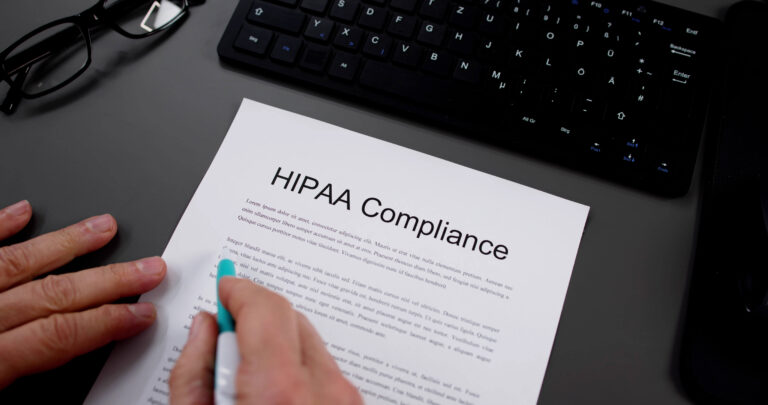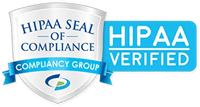Email marketing is a powerful tool for healthcare organizations. It allows providers to communicate important health updates and services. By using targeted emails, healthcare can effectively engage with patients, building stronger relationships and enhancing patient care.
HIPAA compliance in email marketing can be tricky. Protecting patient information is essential. Ensuring that emails are secure and private adds complexity. Marketers must carefully follow rules to prevent data breaches. Understanding these challenges is key to successful campaigns.
This blog post aims to guide you through HIPAA-compliant email marketing. It will explore platforms, automation tools, and best practices. The goal is to help healthcare providers run effective and secure email campaigns. Following this guide can enhance your marketing strategies while ensuring compliance.
HIPAA Compliance Overview
HIPAA sets rules to protect patient information and ensure privacy and security for healthcare data. These regulations apply to all medical communications. Following them helps maintain trust and compliance. Understanding HIPAA is key to protecting sensitive information.
HIPAA rules are strict when using email. Emails must be secure and encrypted, protecting patient data from unauthorized access. Ensuring only authorized users can view these emails is vital. Compliance protects both patients and healthcare providers.
Not following HIPAA rules can lead to serious penalties. Fines can be high, impacting any healthcare practice. Non-compliance can also damage a provider’s reputation. Adhering to all email marketing guidelines is crucial. This prevents legal issues and builds patient trust.
HIPAA Compliant Email Marketing Explained
HIPAA-compliant email marketing keeps patient data safe. It uses secure platforms to send health-related emails, which need encryption to protect sensitive information. Compliance is key to maintaining privacy and trust. It combines marketing with strict security rules.
Mixing patient privacy with marketing can be tough. It means protecting personal details while sharing helpful content. Healthcare providers must make sure no private data is exposed. This balance improves patient relationships and supports ethical marketing. Keeping privacy at the core of all efforts is essential.
Consent is critical in this type of marketing. Patients must agree to receive emails, which ensures openness and respects their choices. Getting consent builds trust and follows legal guidelines. It is a major step for ethical and effective marketing. Proper consent strengthens the bond between patients and providers.
Choosing HIPAA Compliant Email Marketing Platforms
When choosing a platform, prioritize encryption and security. These protect patient information. Make sure the platform is easy to use for building emails. Automation tools help manage campaigns smoothly. Look for customizable templates and analytics features too.
Several platforms are known for compliance. Paubox and Mailchimp offer HIPAA-compliant services, encryption, and easy marketing tools. These platforms follow privacy laws to keep data safe. Evaluating their features helps you find the right match for your needs.
Many healthcare groups use these platforms well. For example, a clinic might use Salesforce for secure reminders. It helps automate appointments while keeping data safe. Another example is a hospital with Constant Contact for newsletters. These examples show how platforms improve patient communication.
HIPAA Compliant Email Marketing Services
Many email services meet HIPAA standards. They use encryption to protect patient data. Paubox and Mailchimp are known for strong security. These platforms help healthcare teams send secure emails. Picking the exemplary service ensures privacy and compliance.
Connecting with existing systems is key. Many platforms link easily with current databases, making managing contacts and emails simple. Automation tools make these tasks even smoother. A smooth integration improves overall efficiency.
Choose providers that follow HIPAA rules. Check their security features and services. Ensure they offer a Business Associate Agreement (BAA). This is crucial for legal compliance. Reviewing these factors guarantees safe and effective email marketing.
Email Marketing Automation and HIPAA Compliance
Many automation tools meet HIPAA standards. They help send secure, timely messages. Look for tools that offer encryption and secure data handling. Paubox and Salesforce are options to consider. These tools ensure your marketing stays compliant and safe.
Start with a plan that prioritizes security. Encrypt all emails containing patient data. Set clear rules for accessing and handling information. Regularly update your systems and review security settings. These practices keep your email workflows compliant.
Automation can boost patient engagement. For instance, sending appointment reminders keeps patients informed, and automated newsletters can share health tips and updates. These tools save time and improve communication, and patients appreciate timely and relevant information.
Developing HIPAA Compliant Email Campaigns
It is essential to create HIPAA-compliant email content. Keep patient information private and use clear language. Avoid sharing sensitive details. Encrypt emails to protect data during sending. Focus on offering valuable content to your audience.
Segment your audience without exposing sensitive data. Use broad categories like interests or demographics. Avoid personal health information. This approach keeps your campaigns compliant and effective. It ensures you reach the right patients with the right message.
It’s important to track your campaign’s success. Use HIPAA-compliant analytics tools. Focus on metrics like open rates and engagement. Regularly check these to improve your campaigns. This helps you see what works while keeping patient data safe.
HIPAA Compliant Email Newsletter Strategies
Patient privacy is crucial when writing newsletters. Use clear and simple words to engage readers. Always keep sensitive information private. Avoid sharing personal details. Focus on helpful and relevant content. This builds trust and keeps newsletters compliant.
Handling subscriptions correctly is key. Make it easy for patients to sign up for newsletters. Offer clear options for unsubscribing when they want. This respects their choices and ensures compliance. A straightforward process encourages engagement and loyalty.
Timing is important for newsletter success. Find a schedule that suits your audience. Avoid overwhelming them with too many emails. Balance the frequency to keep interest and avoid unsubscribes. Regular updates keep patients informed. Thoughtful timing enhances communication effectiveness.
Managing HIPAA Compliant Email Blasts
When sending large email blasts, privacy is key. Use secure platforms that encrypt data. Keep personal details confidential. Focus on clear and engaging content. Ensure that each email meets HIPAA standards. This approach protects patient information and builds trust.
Choose technology that makes mass emailing safe. Look for tools with strong security features. Salesforce can be an option for its secure platform. Automation tools also help manage large sends smoothly. They keep emails compliant and organized.
Monitor email blasts in real-time. Adjust strategies to ensure compliance with HIPAA rules. Watch performance metrics like open rates and engagement. Make quick changes if needed to improve results. Staying flexible helps maintain security and effectiveness.
Salesforce and HIPAA Compliant Emailing
Salesforce is not automatically HIPAA compliant. You can configure it to meet standards. Enable encryption and security features. Signing a Business Associate Agreement (BAA) is essential. These steps make Salesforce suitable for HIPAA emailing.
Adjust Salesforce settings with care. Turn on encryption for all emails. Restrict data access to authorized users only. Regularly review and update security settings. This keeps your emails in line with HIPAA guidelines.
Make sure email-to-lead processes follow HIPAA. Use secure forms with encrypted data. Check that integrations protect sensitive information. Regular audits can spot and fix issues. Keeping these secure maintains compliance and trust.
Integration of HIPAA Compliant Email Tools
Integration should be smooth. Choose platforms compatible with existing software. Ensure data security during integrations. This helps maintain efficiency and security. A seamless connection enhances overall operations.
Ensure integrations respect HIPAA rules. Use secure channels for data transfer. Update integration settings to avoid weaknesses. Monitoring helps catch issues early, keeping your email compliance intact.
Choose compatible tools to overcome challenges. Work closely with the IT staff for setup. Use vendor guides. Address issues quickly to maintain performance. With the right approach, integration is simple and secure.
Email Marketing and Patient Trust
Marketing in healthcare requires a careful approach. You must ensure patient information stays private. Encrypted emails protect data. At the same time, share useful and relevant content. This balance maintains trust and meets legal obligations.
Transparency is key to building trust with patients. Clearly explain how you use their information and provide options for opting out of communications. This openness reassures patients and strengthens relationships. Being honest in your marketing efforts builds loyalty.
Respecting patient data is crucial. Always follow HIPAA guidelines for data protection. Use secure systems to manage and store information. Regularly review your practices to ensure they remain compliant. Treating patient data with care enhances trust and security.
Legal Considerations in HIPAA Compliant Email Marketing
Email marketing in healthcare involves specific laws. HIPAA governs how patient information should be handled. Marketers need to ensure all communications are secure. This means using encrypted services and following strict guidelines. Understanding these nuances helps protect patient privacy and avoids legal issues.
Using disclaimers in emails is essential. They inform recipients about privacy and data usage. Ensure all emails include clear disclaimers to protect your practice. Legal protections also involve having proper agreements in place. These measures maintain compliance and build trust with patients.
Laws and regulations can change. It’s important to stay informed about updates in HIPAA and marketing rules. Regular training and resources can help keep your team current. Adjust your practices as needed to remain compliant. Staying proactive prevents legal problems and strengthens patient trust.
Best Practices for HIPAA Compliant Email Marketing
Regular audits are crucial for compliance. They help identify weaknesses in your email marketing. Frequent reviews and updates to policies keep your practices current. Staying proactive prevents potential issues, ensuring you’re always meeting HIPAA standards.
Data encryption is key to protecting patient information. Use strong encryption tools for all emails. This keeps sensitive data secure from unauthorized access. Implementing these strategies builds trust with your audience. It ensures that your communications remain private.
Training staff on HIPAA protocols is essential. Regular workshops keep everyone informed about best practices and ensure they understand the importance of compliance. Well-trained staff help maintain security and trust. Continuous learning helps your team stay updated and efficient.
Final Thoughts
HIPAA-compliant email marketing protects patient data. Use secure platforms and encryption. Regular audits and staff training are crucial. These steps build trust and keep communication safe.
Staying alert is key in healthcare marketing. Laws and technology evolve, so updates are vital. Regular training keeps everyone informed. Adapting to changes helps avoid breaches. Continuous improvement maintains compliance.
Ethical marketing fosters trust in healthcare. Respect patient privacy and follow the law. Be transparent in your communication. Make security a priority in all marketing. These efforts build trust and strengthen patient relationships.






